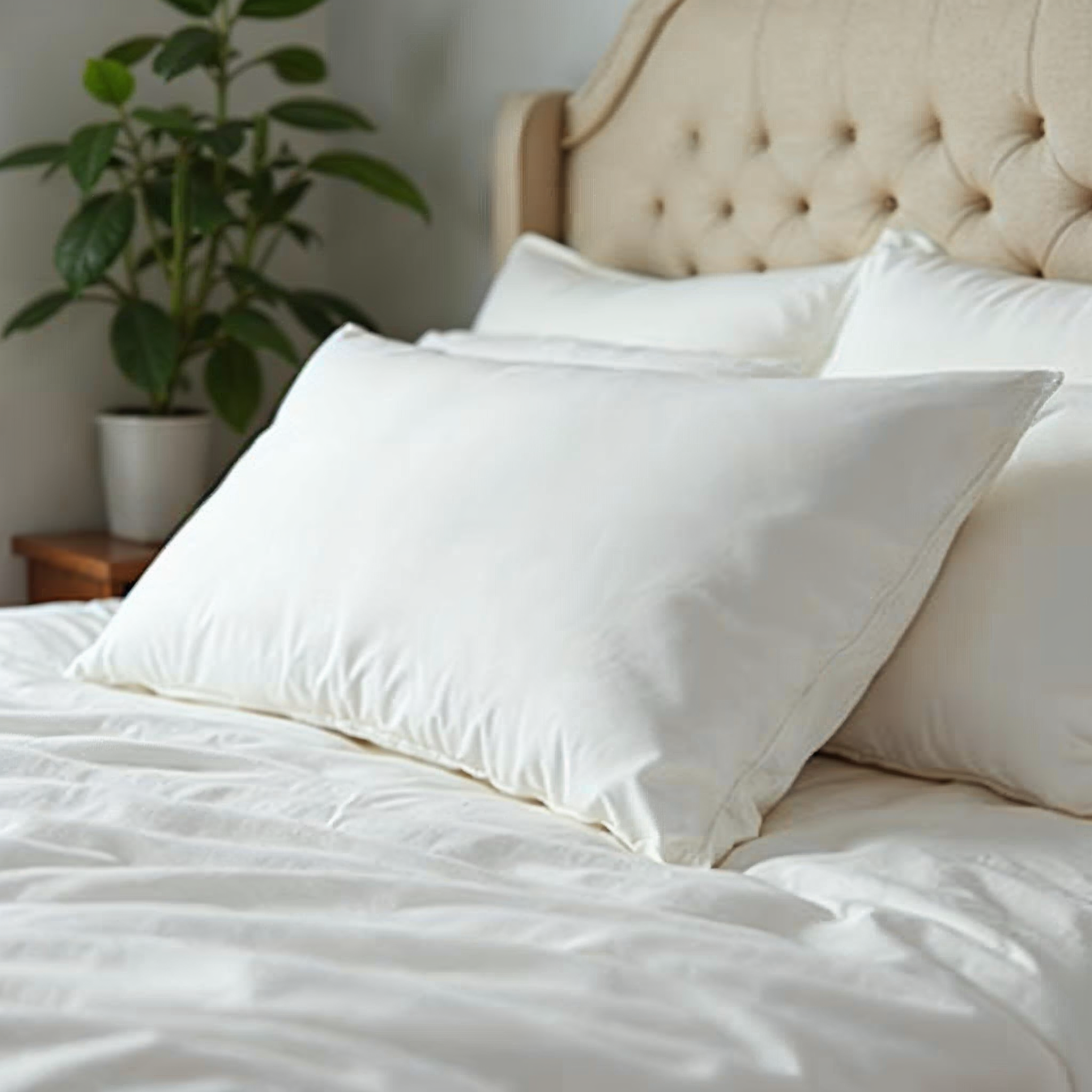The Secret to Quality Sleep: 6 Science-Backed Tips You Need to Know
Getting a good night's sleep might feel like a bit of a mystery, but it doesn't have to be. Sleep is the unsung hero of our well-being, quietly working behind the scenes to balance hormones, manage weight, and refresh our minds. Yet, most of us are stumbling in the dark when it comes to figuring out how to improve sleep. In this chat, we'll share six science-backed sleep tips that can help you achieve that elusive quality sleep, including the surprising benefits of 100% bamboo sheets. Whether you're a hot sleeper or simply someone craving a more restful slumber, these insights could be the key to healthier sleep habits and better sleep health.
The Power of Quality Sleep

Quality sleep is vital for overall health and well-being, yet many overlook its significance. Getting the right amount of rest can transform your life, improving everything from mood to physical health. Let's delve into how sleep influences health and explore some science-backed tips for better sleep.
Sleep's Impact on Health
Sleep is a crucial component of a healthy lifestyle. When we sleep, our bodies repair tissues, consolidate memories, and release hormones that regulate growth and stress. Poor sleep can lead to a range of health issues, such as weight gain, weakened immunity, and increased risk of chronic illnesses.
Research shows that adults need between seven to nine hours of sleep each night. Lack of sleep negatively impacts cognitive function, making it harder to concentrate and remember information. Over time, this can contribute to long-term health problems.
A consistent sleep schedule helps in maintaining circadian rhythms, ensuring energy levels remain stable throughout the day. By prioritising sleep, you can enhance your health and well-being, leading to a more productive and fulfilling life.
Science-Backed Sleep Tips
Creating a sleep-friendly environment is the first step to improving sleep quality. Dark, cool, and quiet rooms promote better sleep. Investing in comfortable bedding, such as bamboo sheets, can also make a significant difference.
Limiting screen time before bed helps reduce exposure to blue light, which can interfere with melatonin production. Aim to switch off devices at least an hour before bedtime to allow your body to naturally prepare for sleep.
Incorporating relaxation techniques, such as deep breathing or progressive muscle relaxation, can help calm the mind and body. These practices have been shown to alleviate stress, promoting better sleep.
Creating Healthy Sleep Habits
Healthy sleep habits go hand-in-hand with quality sleep. Establishing routines and making informed bedding choices can significantly impact sleep quality. This section explores the benefits of bamboo sheets and offers tips for setting a relaxing sleep environment.
Benefits of Bamboo Sheets
Bamboo sheets are an excellent bedding choice for many reasons. They are known for their softness and breathability, making them ideal for hot sleepers. The natural fibres of bamboo wick moisture away, keeping you cool and comfortable throughout the night.
According to Bamboo is Better, bamboo sheets are also hypoallergenic, making them perfect for allergy sufferers. The antimicrobial properties of bamboo help reduce allergens, providing a healthier sleep environment.
Environmentally friendly and sustainable, bamboo bedding is a great choice for eco-conscious consumers. Its ability to quickly replenish makes bamboo a sustainable resource, contributing to a healthier planet.
Setting a Relaxing Sleep Environment
Creating a relaxing sleep environment is essential for a good night's rest. Start by keeping your bedroom dark using blackout curtains or an eye mask. This blocks out light, signalling your body that it's time to sleep.
Maintain a comfortable temperature in your bedroom. A cooler room, around 18 degrees Celsius, is generally considered optimal for sleep. Adjust bedding layers to stay comfortable throughout the night.
Remove noise distractions by using earplugs or a white noise machine. These can help drown out disruptive sounds, allowing you to fall asleep faster and stay asleep longer.
Simple Ways to Improve Sleep
Improving sleep doesn't need to be complicated. Simple changes in daily habits can have a significant impact. This section covers maintaining a consistent sleep schedule and using relaxation techniques to enhance sleep quality.

Consistent Sleep Schedule
Establishing a consistent sleep schedule is vital for quality sleep. Going to bed and waking up at the same time every day helps regulate your body's internal clock, making it easier to fall asleep and wake up naturally.
To create a consistent schedule, start by choosing a bedtime that allows for at least seven hours of sleep. Stick to this schedule, even on weekends, to reinforce your body's rhythm.
If you have trouble falling asleep, consider adjusting your bedtime gradually in 15-minute increments until you find the right balance. Consistency is key, so remain committed to your schedule for long-term benefits.
Relaxation Techniques for Better Rest
Incorporating relaxation techniques into your nightly routine can significantly improve sleep quality. Techniques such as deep breathing, meditation, or yoga can help calm the mind and reduce stress.
Consider setting aside 15 to 30 minutes before bed for relaxation. Begin with deep breathing exercises, inhaling slowly through your nose and exhaling through your mouth. This simple practice can help lower heart rate and induce a state of relaxation.
Meditation apps or guided sleep meditations can also be beneficial. These tools often include calming music or nature sounds, promoting a peaceful transition to sleep.
Take advantage of bundle offers Explore the Eastwind Bamboo range
Use the Code 2for20 save 20%
Use the Code 3for25 save 25%

